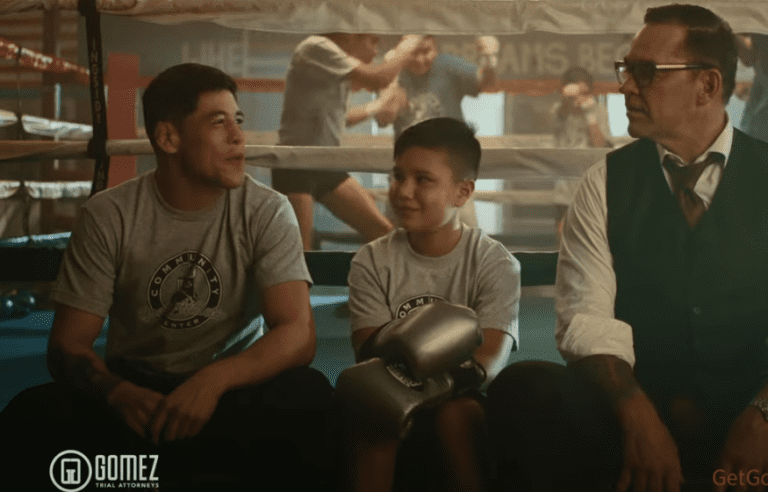And How a Brain Injury Lawyer Can Help You
There are many causes to traumatic brain injury but they can all be can be a life-altering event, but sometimes victims might not be aware they have suffered one. After a slip and fall injury, a motor vehicle accident, or some other event that might lead to a TBI, immediate symptoms don’t always appear. If you’ve suffered a head trauma, you might start noticing signs of a TBI hours, weeks, or sometimes months after the event. When babies and toddlers suffer from brain injury symptoms, diagnosis is even more difficult because they cannot communicate. In some cases, it might take years of noticing your child missed important developmental milestones before medical professionals can diagnose a TBI.
Below are the most common diagnostic tools doctors use for diagnosis. Followed by the long-term impact of a TBI diagnosis on you and your family by the trusted brain injury lawyers at the Gomez Firm.
Tools for Diagnosing a TBI
Each brain injury differs according to the severity and type of injury, and location where the brain suffered damage. If you or medical professionals suspect you or one you love might have a traumatic brain injury, they will likely use one or more of the following tests to make their TBI diagnosis according to the National Institute of Child Health and Human Development.
Glasgow Coma Scale (GCS)
Developed in the 1970s at the University of Glasgow, the Glasgow Coma scale is the most common way for doctors to measure neurological responses in the acute setting after a suspected traumatic brain injury. Doctors assign scores to patients in three different areas to determine their TBI level:
- Verbal ability. Doctors assess whether a patient can speak normally. Some TBI patients cannot speak at all. In other cases, TBI patients might confuse their words or have trouble finding the right words to speak.
- Eye movement. Doctors assess whether you or your loved one can open his eyes on command.
- Body movement. Doctors assess the extent to which a patient can move their limbs and digits on their own and as a reflex to stimulation, which can sometimes be painful.
A doctor can assign up to 15 points between the three categories: four points for eye movement, five points for verbal ability, and six points for body movement. A total score of 13 or greater indicates a mild TBI, a score from 9 to 12 indicates a moderate TBI, and those who have a score below 8 have a severe TBI. This, however, only measures the initial presentation of the injury. So-called mild TBI can still result in severe, long-term symptoms that may take time to fully manifest.
Speech and Language Assessments
After a patient has a suspected brain injury, a speech pathologist typically evaluates speech and language capabilities. During his or her assessment, the speech pathologist is checking for muscle coordination and strength while speaking, the ability to understand grammar and recall vocabulary, and the ability to read and write. In child patients, these assessments take into account age and school grade ability. Ultimately, the speech pathologist is looking to see how much a person might have “lost” what he or she learned. Determining social skills is also a part of this assessment as well as a patient’s ability to swallow.
Neuropsychological Assessments
Patients who have suffered a severe TBI often struggle with cognitive function, which includes thinking, reasoning, problem-solving, processing information, and remembering things. Neuropsychological testing assesses a patient’s cognitive abilities, and in some instances psychological harms as well. Tests include specialized tasks so the rehabilitation specialists can evaluate functions and establish a need for rehabilitation. Family members also play a big role in these types of assessments because they speak to the patient’s lifestyle, behavior, and habits before the injury.
Diagnostic Imaging
Part of diagnosing a TBI also typically includes taking images of a person’s brain. Although many types of imaging exist, the most common diagnostic imaging tools doctors use in the acute setting are:
- Computerized tomography. More commonly referred to as a CT scan or a cat scan, this test involves constructing a complete image of the brain through multiple X-rays. A CT scan can reveal brain bleeds, contusions, and other damage.
- Magnetic resonance imaging (MRI). Magnets and radio waves create detailed images of the brain which offers a better picture than a CT scan. Doctors use MRIs as a secondary TBI assessment, when a CT scan doesn’t provide enough information, because they are long procedures.
- Intracranial pressure (ICP) monitoring. Severe TBIs can cause pressure inside of the skull when the brain swells. This can result in additional brain damage, so doctors insert a probe into the brain to monitor the impact of swelling. In the most extreme cases, doctors might have to insert a shunt or a drain to relieve dangerous levels of pressure.
Not all TBIs manifest in imaging studies. In particular, CT Scans and MRIs have limited diagnostic use, as often times TBIs are caused by microscopic insults to the brain which CT Scans and MRIs will not catch. CT Scans and MRIs are most useful in the acute setting to rule out life threatening brain bleeds and injuries. However, their use for long-term prognosis is limited at best. In fact, the majority of brain injuries will not appear at all on a CT or MRI.
A number of advanced imaging modalities have become available and may be useful in the diagnosis of TBIs when correlated with clinical reporting. These modalities include Diffusion Tensor Imaging, PET Scan, MEG Scan, SPECT Scan, and FMRI.
After a TBI Diagnosis
The biggest precaution someone who has suffered a TBI must take is to not suffer another one. Whether from a car accident, playing sports, or a fall, once a person has one concussion, it takes longer to heal and there is a lesser chance of a full recovery with each subsequent injury.
Life after a TBI diagnosis won’t be as simple. Depending on the severity of the injury and the particular functional struggles a TBI victim might have, victims and their loved ones will need to make many changes and cope with new challenges for some time. In extreme cases, victims might suffer lifelong chronic difficulties with cognitive functions, and suffer headaches, migraines, and other symptoms. Some challenges victims and their families often face after a TBI diagnosis include:
Memory Function
Those diagnosed with a TBI will often have problems with short-term and/or long-term memory. These symptoms may be short-lived, chronic or even permanent.
TBI patients with memory often feel frustrated, and even angry, when they cannot remember things. Friends and family need to help the victim remember what they can, while being flexible and not pushing too hard. Some common TBI issues that survivors have revolve around memory like remembering new information, so loved ones need to repeat new information often and keep it simple. Family members also need to take time to manage expectations and keep in mind the victim is not intentionally trying to make things difficult. Struggles are a result of their condition.
Household Safety
When someone has a moderate to severe TBI diagnosis, he or she might struggle with senses. For example, a victim might touch something hot or cold and have no feeling in their hands; or, they might struggle with double vision or partial blindness. Some TBI victims might experience hearing loss.
Whether temporary or permanent, family members need to help their loved one remain safe when they return home from the hospital. This often means family members must make sacrifices, many of which might be inconvenient, to maintain a safe environment. Some actions are akin to childproofing a home once a toddler begins walking, but family members need to be careful not to infantilize their loved one.
Examples of safety measures you might have to implement include adjusting your hot water heater to a lower temperature so your loved one doesn’t get scalded, installing handrails for those who struggle with vision and balance, or learning new ways of communicating if your loved one cannot speak or struggles with hearing.
Personality Changes
A TBI can cause changes in personality; sometimes these changes are slight and other times they might be obvious. Personality changes are a direct result of damage to areas of the brain which include the frontal lobe, the temporal lobe, the amygdala, and the hippocampus. Victims might feel agitated and display aggression and anger, verbally and physically. These issues can occur on occasion or frequently, and might wreak havoc in relationships between friends and family.
Compounding matters, TBI victims are also prone to psychiatric disorders such as anxiety, depression, alcohol abuse, drug abuse, and obsessive-compulsive disorder. Some victims also suffer post-traumatic stress disorder (PTSD) as a result of the event which led to their brain injury. When victims suffer personality changes combined with a psychiatric disorder, they can increase the frequency and intensity of angry or aggressive behavior.
After a TBI diagnosis, personality changes in the victim might impact relationships in the following ways:
- Broken trust. Loved ones must accept personality changes and get to know the victim again. In some cases, it might be like meeting a completely different person. When the TBI victim erupts in anger, it makes it hard to build trust, which is needed for any healthy relationship.
- Guilt. Sometimes TBI victims don’t always remember what they say or do if they experience outbursts because they don’t have control. When they learn of their behavior, feelings of guilt and shame are common.
- Emotional pain. In situations where a spouse, family member, or friend cares for a loved one after a TBI injury, they might have to endure emotional pain doled out by the victim. The injured loved one is often frustrated with his or her condition, has trouble remembering things, and feels like the caregiver is controlling them. Yet, the caregiver is only trying to keep the TBI victim safe.
- Unresolved arguments. When someone suffers from a brain injury, it’s not easy to have a rational debate or constructive argument. In some cases, this might be impossible. Family members must learn how to manage conflicts with the TBI victim to be able to resolve the argument to a point where both parties can move on in a healthy way. The extent of an injury might force a loved one to avoid conflict altogether and always sacrifice their feelings.
- Reduced intimacy. Frustration with personality changes after a TBI injury can destroy intimacy between partners. One or both might withdraw emotionally and physically due to feelings of inadequacy, lack of trust in the relationship, and an overall emotional disconnection prompted by the TBI victim’s partner feeling like he or she doesn’t know the person who came home from the hospital.

Physical injury. A TBI can have such a dramatic impact on personality, that it can cause the most kind, docile, and gentle person to behave in physically violent and aggressive ways towards caregivers, family members, and friends. While victims may not physically attack those around them, they might threaten harm. This can devastate households, requiring a need for families and friends to learn how to deal with these types of situations.
If you or your loved suffered a TBI, you will likely have a long road ahead. A brain injury attorney might help you secure the funds you need for the care you deserve after an accident resulted in a TBI diagnosis.







